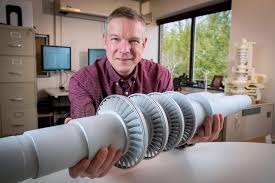
Breaking News
 Watch This If You Want To Grow Your Own Food in 2026
Watch This If You Want To Grow Your Own Food in 2026
 US government admits fault in midair collision that killed 67 near DC
US government admits fault in midair collision that killed 67 near DC
 'Investing in regenerative and organic is not a political stance':
'Investing in regenerative and organic is not a political stance':
 Why Dan Bongino is LEAVING FBI and Trump Admin and Returning to Podcasting...
Why Dan Bongino is LEAVING FBI and Trump Admin and Returning to Podcasting...
Top Tech News
 This tiny dev board is packed with features for ambitious makers
This tiny dev board is packed with features for ambitious makers
 Scientists Discover Gel to Regrow Tooth Enamel
Scientists Discover Gel to Regrow Tooth Enamel
 Vitamin C and Dandelion Root Killing Cancer Cells -- as Former CDC Director Calls for COVID-19...
Vitamin C and Dandelion Root Killing Cancer Cells -- as Former CDC Director Calls for COVID-19...
 Galactic Brain: US firm plans space-based data centers, power grid to challenge China
Galactic Brain: US firm plans space-based data centers, power grid to challenge China
 A microbial cleanup for glyphosate just earned a patent. Here's why that matters
A microbial cleanup for glyphosate just earned a patent. Here's why that matters
 Japan Breaks Internet Speed Record with 5 Million Times Faster Data Transfer
Japan Breaks Internet Speed Record with 5 Million Times Faster Data Transfer
 Advanced Propulsion Resources Part 1 of 2
Advanced Propulsion Resources Part 1 of 2
 PulsarFusion a forward-thinking UK aerospace company, is pushing the boundaries of space travel...
PulsarFusion a forward-thinking UK aerospace company, is pushing the boundaries of space travel...
 Dinky little laser box throws big-screen entertainment from inches away
Dinky little laser box throws big-screen entertainment from inches away
 'World's first' sodium-ion flashlight shines bright even at -40 ºF
'World's first' sodium-ion flashlight shines bright even at -40 ºF
This Desk-Size Turbine Is Capable Of Powering An Entire Town

As technology advances, devices of all kind tend to get smaller. The desk-size turbine invented by GE Global Research is no exception.
According to MIT Technology Review, the turbine is capable of powering a small town of about 10,000 homes. How is this possible? The prototype is driven by "supercritical carbon dioxide," which is in a state that at a very high pressure and up to 700 °C exists as neither a liquid nor a gas. After the carbon dioxide passes through the turbine, it's cooled and then re-pressurized before returning for another pass.
The unit's makers believe that the turbine could be useful in grid storage. That's because the turbine is compact in size and can turn on and off rapidly. In fact, the invention is projected to be over 5 percent more efficient than steam turbines in the process of converting heat into electricity. Even more promising, the GE prototype is 10 megawatts, but the company would like to scale it up to 33 megawatts.
Said Doug Hofer, the GE engineer in charge of the project:
"The key thing will come down to economics."



